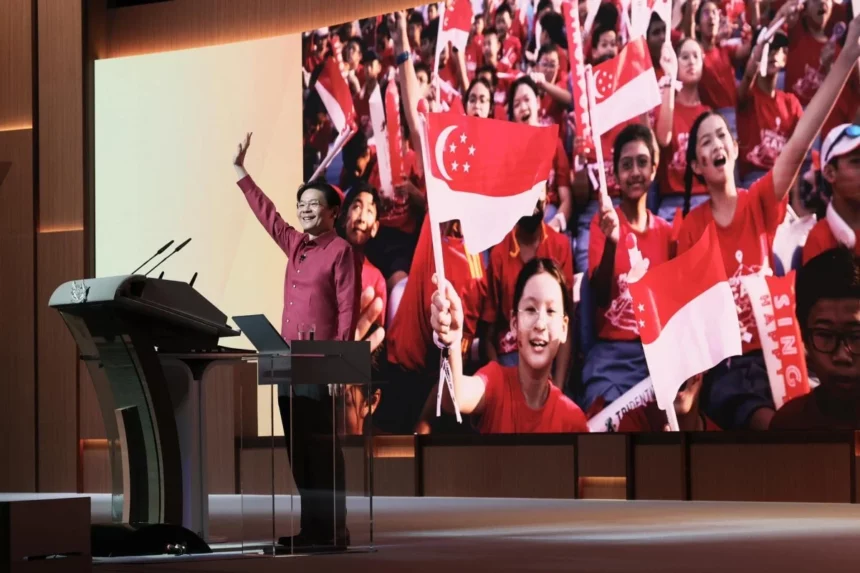Lawrence Wong’s National Day Rally: Key Policy Shifts
Singapore’s new Prime Minister, Lawrence Wong, delivered his first National Day Rally speech, which many appreciated for its approachable tone. However, experts believe the social safety net policies he introduced might seem more incremental than the transformative overhaul some expected.
Introduction of New Policies
Lawrence Wong’s National Day Rally speech included key initiatives aimed at supporting Singaporeans. These initiatives were the introduction of an unemployment payment scheme, extending state-sponsored parental leave by 10 weeks, and a new training allowance for Singaporeans aged 40 and above who take time off work for further studies. Although these changes enhance existing measures, sociologist Tan Ern Ser highlighted that the new support for retrenched workers is significant. Yet, it remains aligned with Singapore’s focus on workfare rather than welfare.
Financial Implications and Public Engagement
Analysts expect the costs associated with these policies to be manageable within Singapore’s sustainable budget model. During his speech, Lawrence Wong addressed the nation in Malay, Mandarin, and English, showing his efforts to connect with a wide spectrum of Singaporeans. He also shared personal stories about his upbringing, emphasizing his commitment to being a “fellow Singaporean.”
Humanizing Leadership
Nydia Ngiow, managing director of BowerGroupAsia’s Singapore office, observed that Wong’s approach aimed to humanize both himself and his team, particularly in the eyes of younger voters. Former Nominated Member of Parliament Zulkifli Baharudin noted that Wong’s background allows him to relate to a broad range of Singaporeans, in contrast to his predecessor, Lee Hsien Loong.
Expectations vs. Reality
Zulkifli also pointed out that while Wong is a strong successor in terms of continuity, many expected a more transformative approach in both style and substance. The similarity of Wong’s rally format to Lee Hsien Loong’s might have contributed to the perception of incremental rather than radical change.
Substantial Policy Shifts
Among the significant policy shifts, Lawrence Wong announced financial support for those who lose their jobs, offering up to S$6,000 (US$4,580) over six months, along with a new training allowance for middle-aged workers. Tan Wen Wei, an analyst from the Economist Intelligence Unit, described this as a substantial policy shift, especially for a country that has long emphasized self-reliance.
Future Implications and Economic Strategy
Suan Teck Kin, head of research at UOB, noted that these measures are timely investments in reskilling and upskilling Singaporeans, especially in light of technological disruptions like AI. He also emphasized that the scheme’s estimated cost of S$200 million is unlikely to strain Singapore’s budget.
Looking Ahead
Despite these initiatives, political analysts believe an election is unlikely this year. Lawrence Wong’s National Day Rally hinted that more policy details will be unveiled later, potentially aligning with Budget 2025. This suggests that the next general election, which must be held by November 2025, is more likely to occur after these developments are fully outlined.

